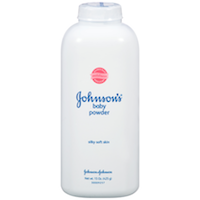
The verdict marks J&J’s seventh loss in the matter, and while overall results have been mixed until now, the losses are starting to pile up and a pattern may be emerging. At issue is not only whether one of the country’s – if not the world’s – most trusted brands contained a known carcinogen for decades, but also whether the company actively tried to hide that fact from the families who trusted it.
California resident Teresa Leavitt was awarded $29 million and the decision sent J&J stock tumbling as American consumers were once again left wondering what the company knew and when they knew it.
The notion of ‘when they knew it’ could become a major factor, as so many of the corporation’s public denials have been rooted in the present. “Does not contain asbestos” is a fundamentally different statement from “has never contained asbestos,” and the fact that Leavitt won even after having granted that she is not a current user of the product (in fact, she hadn’t used it for two decades), but had previously used it extensively from childhood into adulthood, is striking.
Those who develop mesothelioma as a result of the work they do generally show evidence of the asbestos in their systems being industrial grade. Yet Leavitt’s asbestos showed no signs of being industrial grade and therefore could not have been introduced as a result of the work she was doing, so it had to come from somewhere else. When coupled with information contained in a bombshell report from Reuters that showed Johnson & Johnson knew decades ago that the talc mining process could lead to talc intermingling with asbestos, the choice of words becomes very important. In fact, even though the product may not currently contain asbestos, that does not account for the fact that according to Johnson & Johnson’s own internal documents, multiple lab samples from the 1970s well into the early 2000s showed “rather high” levels of asbestos in J&J talc.
Over 13,000 talc lawsuits remain to be heard across the country as the shiny, polished finish continues to be rubbed off a brand that was once a pillar of wholesomeness and trust.
